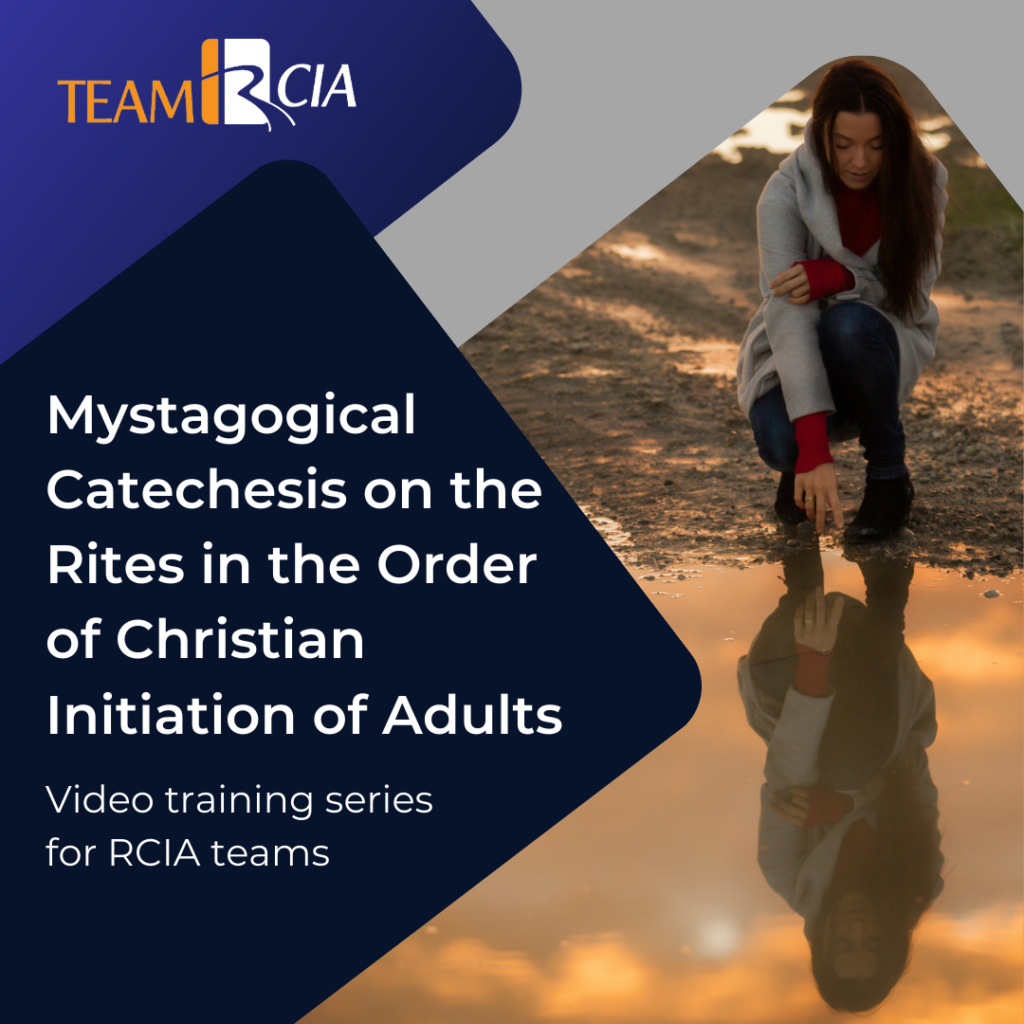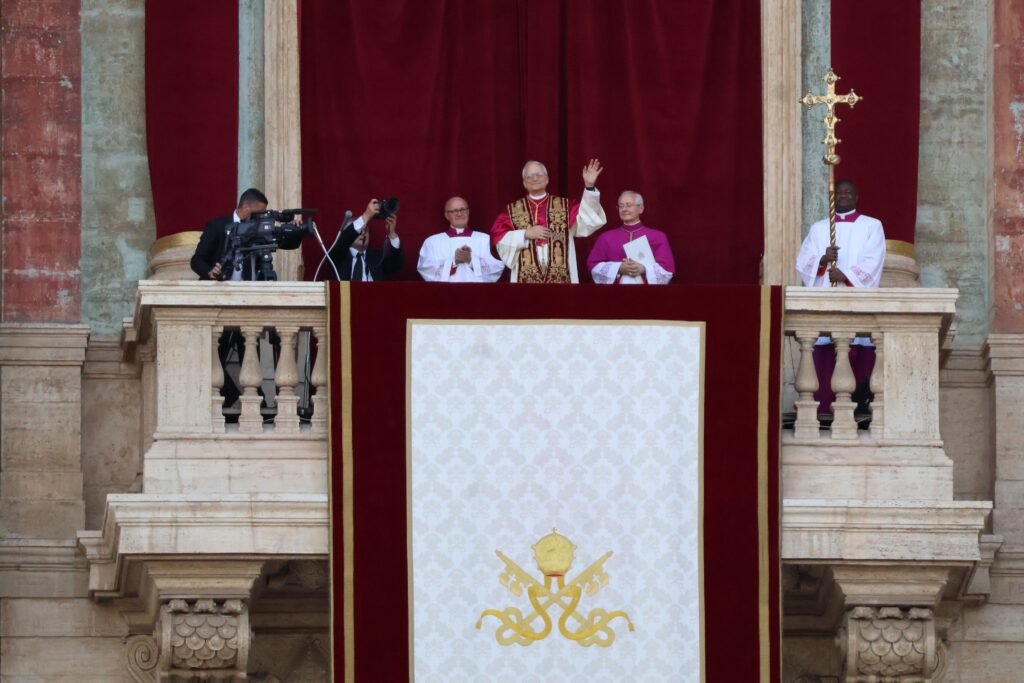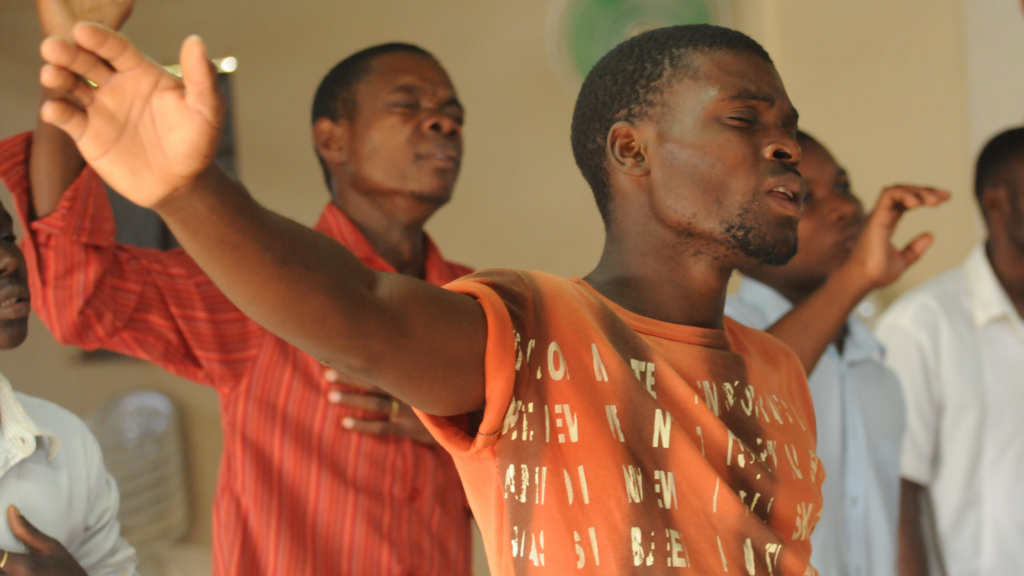What if I told you that baptism is NOT the real goal of adult initiation? Surprised? That’s the insight of Hendrik Manders, a Redemptorist priest and sacramental theologian who, along with others, shaped the renewed understanding of catechumenate process after Vatican II.
Manders’ goal was to prevent the not-yet-developed catechumenate process from becoming a simple checklist for getting baptized. Rather, he wanted to be sure baptism was connected to faith — a faith that leads to new life fully lived.
Letting go of my teacher hat
This matters to me, personally right now because we have six inquirers in our parish. Most, maybe all of them, want to “go to school.” That is, they want to take enough classes and learn enough Catholic stuff so that they can get baptized. However, when I ask them why they want to get baptized, their answers are vague. I get that. They are still growing in their faith, and they don’t yet even know what baptism means beyond “becoming Catholic” (which they also don’t yet really understand the depth of).
But once the inquirers become catechumens—whenever that may be—we cannot rush them to the font. Baptism is NOT the goal. For them, baptism was the only goal.
Once the inquirers become catechumens—whenever that may be—we cannot rush them to the font. Baptism is NOT the goal.
The journey of faith is to the Cross and newness of life
Manders is right. Initiation is not about baptism. Or rather, it’s not only about baptism. Baptism is an expression of faith. Through that faith, we are incorporated into the paschal mystery. That’s why we proclaim Paul’s letter to the Romans at the Easter Vigil.
Are you unaware that we who were baptized into Christ Jesus
were baptized into his death?
We were indeed buried with him through baptism into death,
so that, just as Christ was raised from the dead
by the glory of the Father,
we too might live in newness of life.
What does it mean to live in the “newness of life” that St. Paul refers to? One way to look at it is to say that our old life had no meaning or it had the wrong meaning. Our new life in Christ is meaning-full. We now have a purpose. Our purpose is to live in such a way that God’s mercy becomes real and tangible for our brothers and sisters in the world, especially those on the margins. Manders said:
It means that, like the Lord, I must be concerned about my [brothers and sisters] and committed to justice and peace…. Thus the faith of baptism is an appeal. Thus it becomes possible for God to become manifest as the living God…within this world, but we must share in the responsibility for this. (“The Relation Between Baptism and Faith,” in Liturgy: Adult Baptism and the Catechumenate, 15)
The Holy Spirit is in no rush
Faith that leads to that kind of action doesn’t usually spring up overnight. That’s why the catechumenate process is so lengthy and elaborate. It takes time to develop a faith that is deep and strong and is meaning-full.
The Order of Christian Initiation of Adults understands this. If I were back in my school-teacher mode, I would be scheduling our six seekers for the Rite for Entrance into the Catechumenate right now so I could get all the Catholic stuff taught before Easter. But the order says the Rite for Entrance
…should not happen too early: it is right to wait until the inquirers, depending on their attitudes and circumstances, have enough time to embrace the beginnings of faith and to show the first signs of conversion. (OCIA 18)
And once the inquirers become catechumens—whenever that may be—we cannot rush them to the font. Baptism is NOT the goal. Meaning-full faith that leads to newness of life, a life committed to peace and justice, is the goal. Again, the order understands this and cautions us:
The catechumenate, or pastoral formation of the catechumens, should last long enough for their conversion and faith to mature, even over several years, if need be. (OCIA 76)
Once the inquirers become catechumens—whenever that may be—we cannot rush them to the font. Baptism is NOT the goal.
Grow faith by reflecting on encounters with Christ
Every encounter your seekers have with Christ is a learning experience. But if they are new to listening to the Spirit, they can easily miss the message. So as an accompanist, practice mystagogical reflection with your seekers on a regular basis. You can read a lot more about how to do that in our many articles on the topic. Here is the short version:
- Recall what happened
- Ask what moved or touched the seeker most
- Ask what they felt in that moment
- Ask what they think the Spirit was trying to tell them (what did they learn?)
- Connect what the heard or felt with Catholic tradition
- Ask the seeker if any of this matters in their life right now
- If it does matter, what will the seeker do in response (how will they live differently?)
- Repeat
Liturgy is the primary place where we and our seekers encounter Christ. But they will also have encounters in their homes, workplaces, schools, and social engagements. Teach their sponsors and other parishioners who to do a simple form of mystagogical reflection with the seekers:
- What did you see?
- What did you hear?
- What did it mean?
Do this over and over again, “even over several years, if need be,” until the faith of the seeker is mature and meaning-full.
Accompanying seekers on the journey of faith
As catechumenate team members, our deepest task is not to hurry seekers toward the baptismal font but to walk with them as they grow in faith—the real goal of initiation. Hendrik Manders reminds us that baptism is the sacramental sign of a profound inner transformation: a new life rooted in Christ’s death and resurrection, lived out in justice, mercy, and community.
This means our ministry calls for patience, accompaniment, and attentiveness to where our inquirers are in their journey. It means celebrating every step toward a deeper awareness of faith, every sign of conversion, no matter how small. Baptism is a milestone, not a finish line.
The six inquirers in our parish are in a sacred time right now, and it is important for our team and our parish to nurture their faith. We have to remember that this slow, faithful work bears fruits far beyond what any class or checklist could achieve. Our goal for these six and for all those we accompany on the journey of faith is to help build a church not just of baptized members, but of committed missionary disciples who live in the newness of life.
Celebrate every step toward a deeper awareness of faith, every sign of conversion, no matter how small. Baptism is a milestone, not a finish line.
Tell us about your seekers
Where are your seekers right now on the journey of faith? What new things are you learning from them about the art of accompaniment? Share your story in the comments section below.
Don’t Let Your Seekers Miss What the Spirit Is Saying

If you want to move beyond simply teaching content and instead help your seekers truly encounter Christ in the rites and in daily life, you need a solid process for mystagogical catechesis.
That’s exactly what you’ll learn in the Mystagogical Catechesis Video Marathon with Diana Macalintal and Nick Wagner. In six short, practical videos, you’ll discover:
- How to lead mystagogical catechesis with confidence
- How to unlock the symbols of the rites as encounters with Christ
- A step-by-step method for guiding seekers and parishioners in reflection that leads to real conversion
- Tools to train your whole team in this essential ministry
Each video is just 15 minutes—perfect for training, discussion, and practice—and your purchase comes with lifetime access.
Deepen your ministry of accompaniment and help seekers hear the Spirit more clearly. Get the Mystagogical Catechesis Video Marathon today for just $44.99 (regularly $69.93).
(Note: this marathon and all our video marathons are free for Team Initiation Members.)


















